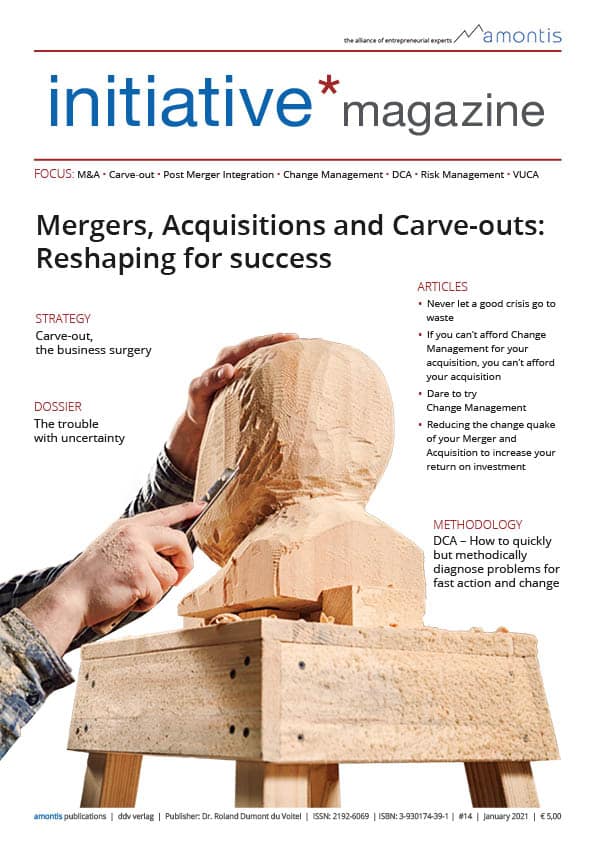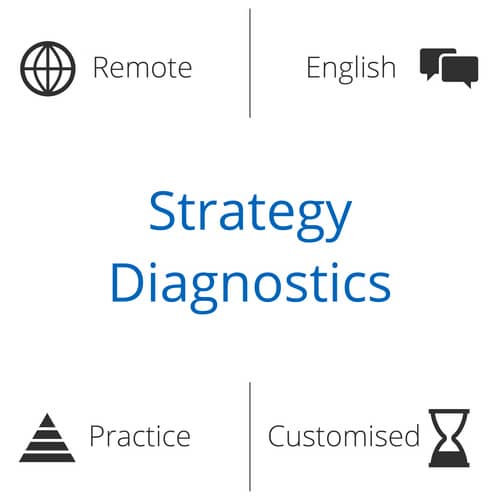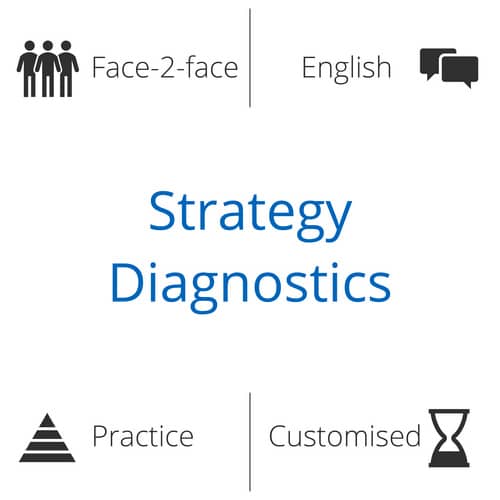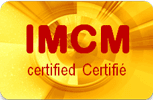Diagnosing and analysing problems sound like resource-intensive, lengthy exercises, at least if it is to be done well. At the end of the analysis, there are problems, root causes and maybe solutions and action points uncovered and documented but teams and their leaders often still don’t know where to start. The DCA¹ approach is an interesting methodology to move from identifying problems to actively designing or redesigning your strategy and operations.
1. Russon Charles-Henri, James Odile, Bufferne Pierre, Mullender David, and Giguerre Daniel (2010). “DCA-stratégie, Mode d’emploi (version 10.0)”. IFEAS – Editions Scientifiques & Techniques.
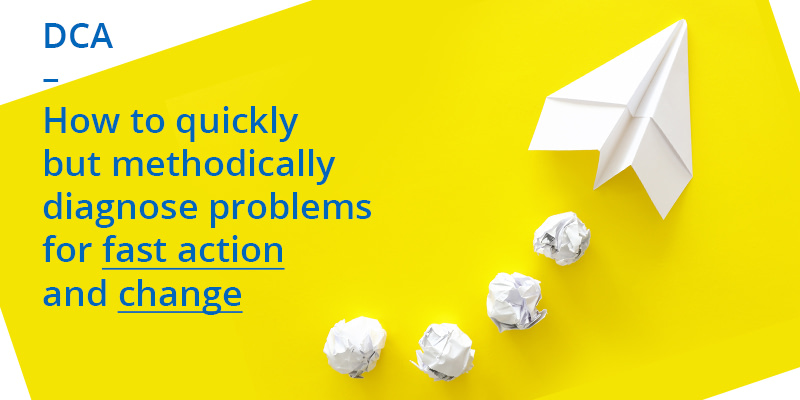
This article has been first published in our initiative*magazine #14: „Mergers, Acquisitions and Carve-outs: Reshaping for success“ (free download).
Authors:
MATHIEU BLONDEAU | DR. ROLAND DUMONT DU VOITEL
Table of Contents
What is the DCA methodology?
DCA, a diagnostic methodology (in French: Diagnostic Court Appliqué), was developed by the IFEAS (Institut Francophone d’Etudes et d’Analyses Systémiques, Montreal), is a tool to help managers structure their strategydesign process and overcome recurrent flaws in the way to define them.
Going through several short phases of analysis and syntheses from different angles and perspectives, the methodology guides you on an innovative path of reflection. By the end of the process, you will have reassessed your context, organisation and capabilities, established a vision for the next periods of 3 to 5 years and defined a contextual strategic and action plan.
This article was first published in our initiative*magazine #14:
„Mergers, Acquisitions and Carve-outs: Reshaping for success“
The system diagnosis is very pragmatic. It provides you with a set of
40 concrete scenarios with different pragmatic and empirically-based ideas to help you start the reflexion phase. It also helps you decide on what to focus on first and make a synthesis of your own perceptions. The result can then be submitted for review and feedback can be used to make more sustainable decisions. If the exercise is quick, it deserves to be nuanced, relativised and above all shared.
Finally, the DCA methodology is flexible and can be followed to reflect on specific issues, e.g. one of your M&A, carve-out or buy-out strategy. It lets you collect, analyse and process a variety of information at a great pace and might be an essential asset for acting and moving quickly in these uncertain times.
Strategy Diagnostics: quick but pragmatic with the DCA Methodology!
The ability to adapt and act requires a quick and solid analysis. In just a few steps, we effectively support you in bringing about and introducing pragmatic solutions!
Book your workshop online now:
If you need further consultancy, just get in touch with us – our first conversation is free of charge.
Interested in content like this?
Subscribe now!
Newsletter
About the authors

Roland Dumont du Voitel
Roland Dumont du Voitel looks back on many years of experience in consulting and managing corporations through tough times of turnarounds as well as coaching senior managers to find their way in times of changes, mergers and acquisitions.

Mathieu Blondeau
Mathieu Blondeau is a Marketing specialist with a strong international background. Open-minded and motivated, he gives the best to overcome new challenges.




